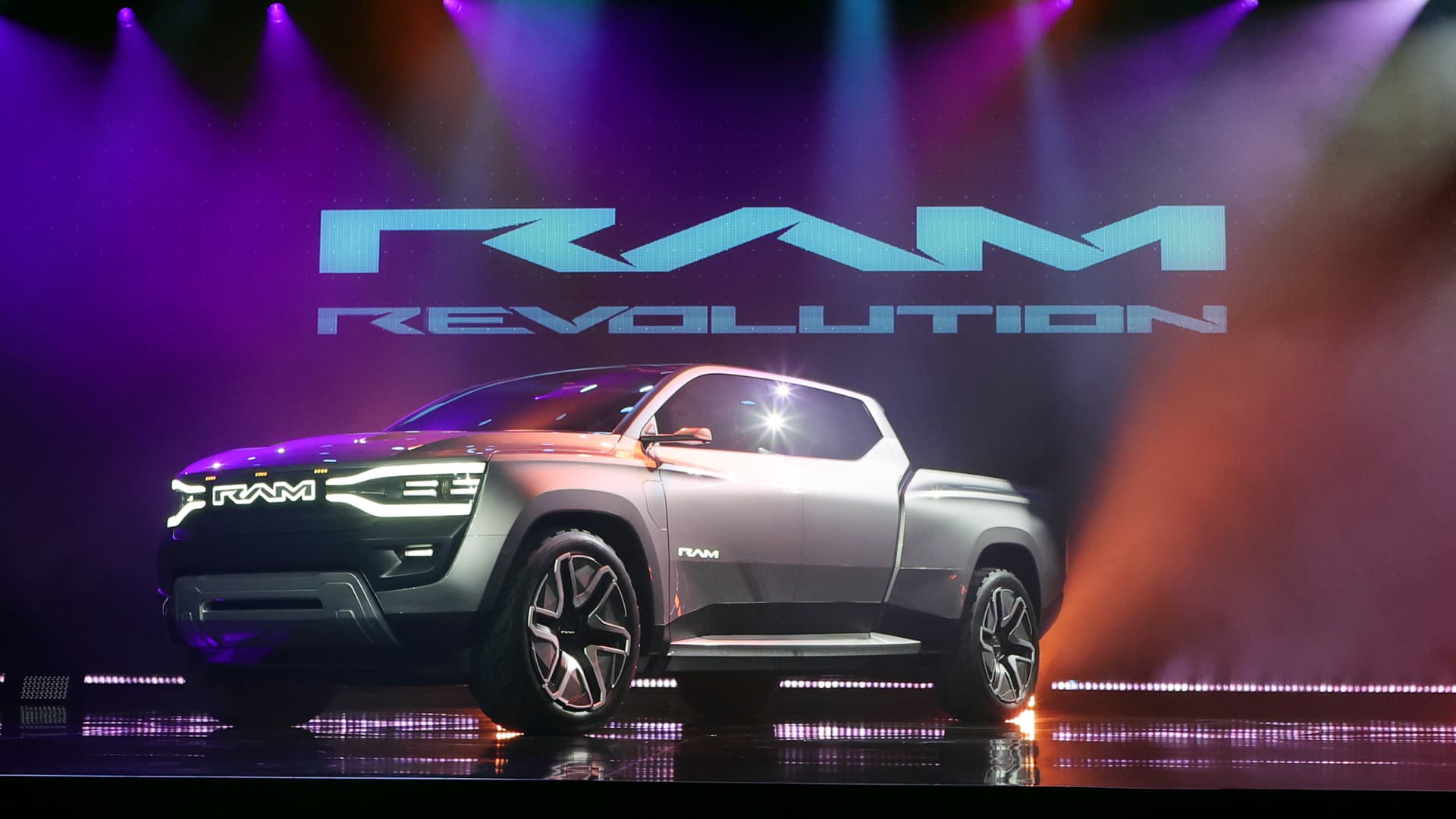DETROIT â Stellantis is delaying the launch of its Ram electric pickup trucks from this year until the first half of 2025, as the trans-Atlantic automaker continues testing the vehicles.
CEO Carlos Tavares on Tuesday declined to disclose details about what caused the delays or specific timing on the electric trucks, which include an all-electric “REV” model and an extended-range “Ramcharger” that’s equipped with an electric generator and a gas engine.
“We are just facing a very significant amount of workload, and we want to be very prudent in the way we validate the products, so we take our time, and we make sure that we manage the peak,” Tavares said during an online media event. “We don’t want to rush. … It’s better to take a few weeks more to validate properly than to rush and then to make mistakes in terms of quality. That’s what we are doing now.”
Tavares said work needs to be completed on the Dodge Charger Daytona and Jeep Wagoneer S EVs, which are expected to be released by the end of this year, before turning to the new trucks.

Stellantis’ upcoming electric pickups are the first that will be built on the company’s new “STLA Frame platform” for its larger trucks and Jeep SUVs. It is expected to be a “multi-energy platform” that’s capable of internal combustion engines and hybrids, as well as electric models using batteries, fuel cells and range-extended electric propulsion systems.
Stellantis has said the Ramcharger extended-range electric vehicle can operate as a zero-emissions EV until its battery dies and an electric onboard generator â powered by a 27-gallon, 3.6-liter V6 engine â kicks on to power the vehicle.
The automaker reconfirmed plans Tuesday for the REV to be capable of 500 miles on a single charge as well as the Ramcharger’s expected class-leading range of up to 690 miles.
“We are managing the peak between the products that we have ahead of us,” Tavares said. “[There’s a] huge product blitz coming to the U.S. market in the next few months.”
Stellantis’ U.S. EV offensive is set to begin at an inopportune time for the automaker, as President-elect Donald Trump has vowed to lower or repeal many Biden administration goals and funding for all-electric vehicles.
Last week it was reported that Trump’s transition team is planning to kill the $7,500 consumer tax credit for EV purchases as part of broader tax reform legislation. Doing so would deliver on Trump’s campaign comments about removing such incentives and EV initiatives.
Tavares, who has criticized governments for EV regulations but also has touted the benefits of them, said the company “will adapt” to any changes made by the Trump administration.

